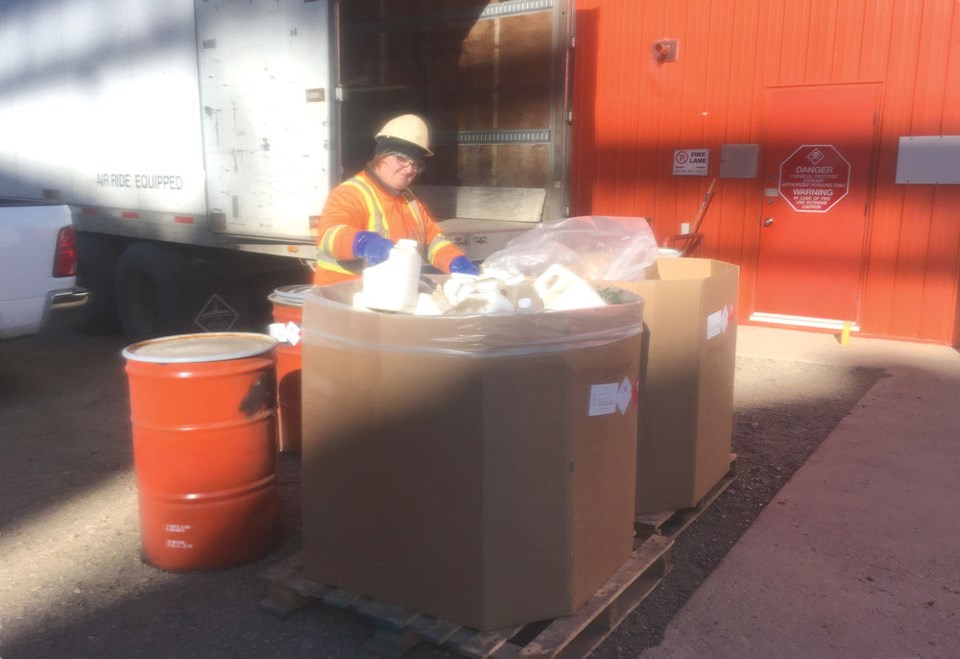Local producers were able to safely and responsibly dispose of their unwanted or obsolete pesticides last week.
In partnership with the Canadian Animal Health Institute (CAHI), Cleanfarms, an industry-led, national not-profit organization, was at Richardson Pioneer’s Estevan terminal on Thursday.
Davin Johnson with Cleanfarms said they were accepting pesticides, fungicides, insecticides and herbicides.
“Throughout the province and throughout Canada, some farmers, whether through inheriting land or purchasing new land, they end up with either obsolete pesticides or unwanted ones (because) the registration has been withdrawn on the chemical, and/or the product is damaged because the product froze over winter,” said Johnson.
Cleanfarms offers producers a safe place to dispose of the unwanted materials. By taking the unused chemicals, the chemicals don’t wind up in municipal landfills, which don’t accept the chemicals.
Quite a few people dropped off their unwanted or unusable items, he said.
“A lot of people did know about this,” said Johnson. “We advertised in all different avenues.”
The visit to Estevan was one of about 20 across the southern portion of the province last week, and Richardson Pioneer was one of several businesses in southern Saskatchewan to serve as drop-off points.
“It’s been a really good collection everywhere,” he said. “We’re hearing from the other crews that there has been a good response.”
After collection, the pesticides are taken to a licensed waste management facility in Alberta where they are safely disposed of through high temperature incineration.
“That facility has special filtration systems in it as well so that there’s nothing С����Ƶ emitted into the atmosphere from incinerating it,” said Johnson.
The obsolete pesticide program, which also includes a livestock and equine medication collection component, is a national program that is alternated to different parts of the country.
In between collections periods, farmers are asked to safely store their unwanted pesticides and livestock medications until they can properly dispose of them through the program.
Since 1998, Saskatchewan farmers have turned in more than 560,000 kilograms of obsolete pesticides, and 183,000 kilograms during last collection in 2014 and 2015.




